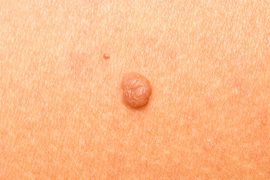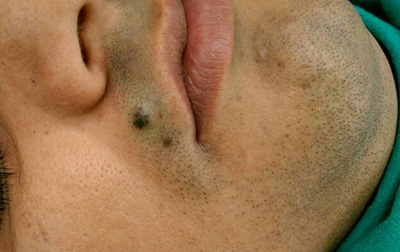
Dr. Abha Bhatnagar specializes in Dermatology (Skin disorders).
She did her MBBS from SMS Medical College, Jaipur and MD from Postgraduate Institute of Medical Education and Research, (PGIMER), Chandigarh.
Later she worked as a Senior Registrar in Government Medical College and Hospital, Sector 32, Chandigarh.
Throughout her academic career she has won several national and international awards including the prestigious Poster exhibit award by American Academy of Dermatology, USA, scholarship by International Society of Dermatology to addend International Congress of Dermatology, Prague, Czech Republic and travel scholarship by Women's Dermatology Society, USA.
She has authored several research papers in international journals. She is also reviewer for several international peer reviewed indexed journals including Clinical and Experimental Dermatology, UK and Journal of the European Academy of Dermatology and Venereology.
Dr. Abha Bhatnagar is the Vice President of Chandigarh Dermatology Society.
She is an active member of the Indian Association of Dermatologists, Venereologists and Leprologists (IADVL) and Association of Cutaneous Surgeons of India (ACSI).
She has also volunteered with State AIDS Control Society, UT and Leprosy elimination campaigns of UT.
Her area of special interest is Aesthetic and Cosmetic Dermatology, Pigmentary Disorders, Paediatric Dermatology and Skin Care Counselling.
Moles, medically known as nevi, are growths on the skin that are usually brown or black. They can appear anywhere on the body, alone or in groups. Moles occur when the cells in the skin grow in clusters instead of spreading evenly throughout the skin. These cells are what give skin its pigment, so moles appear darker than the skin. Many moles will darker over time, when exposed to the sun, and during pregnancy. It is also common for hairs to grow on the mole. Individuals with lighter skin tend to have more moles than those with darker skin, and most people with moles have between 10 and 40. Moles are generally harmless, but it is important to know that melanoma, the most serious form of skin cancer, can develop in or around a mole, so knowing your moles is essential to catching signs of cancer early.


There are several types of moles, and some carry greater risks of developing into melanoma than others.
If Dr. Abha Bhatnagar tests a tissue sample and finds it to be cancerous, the entire mole and part of the tissue surrounding the mole will need to be removed. Or, if you would like a mole removed for cosmetic purposes, the same procedure will be performed. Mole removal surgery is very common and usually painless. There are two ways to remove moles, and both can be performed in Dr. Abha Bhatnagar office.
One method for removing the mole is called "shave excision." Dr. Abha Bhatnagar will numb the area around the mole, and use a small blade to cut around and beneath the mole, removing it. This technique is generally used for smaller moles, and does not require stitches.
The other method is called "excisional surgery." Dr. Abha Bhatnagar will cut other mole and the surrounding area of skin with a scalpel. This technique is usually used to remove potentially cancerous moles, and does require stitches to close the skin.
The best way to identify potential problems is to know the pattern and placement of your moles, and to examine them often. When monitoring your moles, remember the "ABCDE" method of self-examination.
That is:
If you notice any of the above irregularities in your moles, you should contact Dr. Abha Bhatnagar right away. To further prevent moles from becoming cancerous, you should avoid the sun at peak hours, always wear sunscreen, and cover up moles with clothing when exposed to the sun.
of [Zirakpur]
The Skin Solutions
SCO 15,FF, Amcare Plaza,VIP road,
Zirakpur, Mohali, Punjab 140603
Monday to Saturday
09:30 AM - 02:00 PM
4:00 PM - 6:00 PM